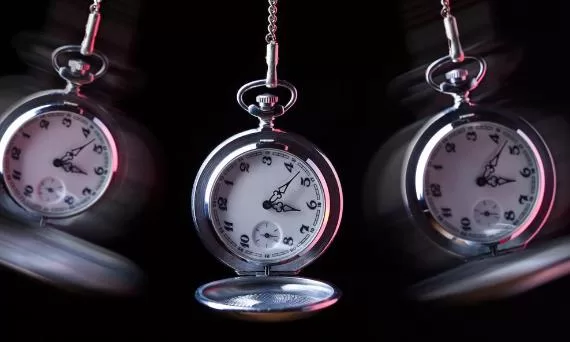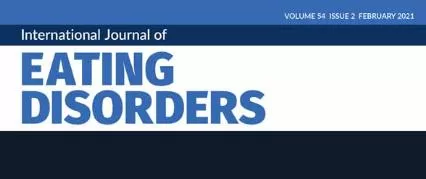Can Hypnosis Be Used To Treat Eating Disorders?
Learn how hypnosis can be used to help treat eating-disorder.

Selfpause Affirmation App
Download the app to get 1,000’s of affirmation meditations and everything you need to write, record and listen to your own.
Eating disorders are a serious form of mental illness that affects millions of people all over the world. They are marked by a change in eating habits that lasts for a long time and has a big effect on physical health or social functioning. Anorexia nervosa, bulimia nervosa, and binge-eating disorder are all common eating disorders.
Most of the time, eating disorders are treated with a mix of psychotherapy, medication, and advice about what to eat. But there is more and more interest in using hypnosis as an extra therapy to help people with eating disorders.
In this article, we’ll talk about hypnosis as a possible treatment for eating disorders. We’ll look at how it works, what evidence there is that it works, and how to use it in real life.
How something works

Hypnosis is a state of deep relaxation and increased openness to suggestions that lets people get in touch with their subconscious mind. When people are in this state, they may be more open to suggestions and more likely to be able to change their thoughts and actions for the better.
Hypnosis can be used to treat eating disorders by addressing the underlying emotional and psychological issues that lead to disordered eating. For example, hypnosis can help people find and change negative beliefs about their body image. It can also help them feel better about themselves and feel less anxious and stressed.
Hypnosis can also be used to change certain ways of eating. People with bulimia nervosa, for example, may be taught self-hypnosis techniques to cut down on the number and severity of their binge-purge cycles. People with anorexia nervosa may also be taught hypnosis techniques to help them want to eat more and feel less afraid of gaining weight.
Proof that something works

Even though there isn’t a lot of research on hypnosis as a treatment for eating disorders yet, there is more and more evidence that it may be a useful addition to other therapies.
The International Journal of Eating Disorders published a systematic review of hypnosis as a treatment for eating disorders. The review found that there isn’t a lot of evidence, but hypnosis may help stop binge eating and improve body image and self-esteem.
In another study, which was published in the Journal of Consulting and Clinical Psychology, it was found that a combination of hypnosis and cognitive-behavioral therapy was better at treating bulimia nervosa than cognitive-behavioral therapy alone.
Things to think about

If you want to use hypnosis as a complementary therapy to treat an eating disorder, there are a few practical things to think about.
First, it’s important to find a qualified, licensed, and experienced hypnotherapist who has worked with people who have eating disorders. A trained hypnotherapist can make sure that your hypnosis sessions fit your needs and goals.
Second, hypnosis should always be used as part of a full treatment plan that includes psychotherapy, medication, and nutritional counseling. Hypnosis alone should not be used to treat someone with an eating disorder.
Third, hypnosis should only be used in a way that is safe and follows the rules. People should never be forced or tricked into changing their behaviors or beliefs through hypnosis. Instead, hypnosis should be used to help people change their lives for the better.
Lastly, you should go into hypnosis with an open mind and be ready to take part in the process. Hypnosis is a group activity, and the success of the session will depend on how willing you are to take part and do what the hypnotist suggests.
Hypnosis could be a helpful extra therapy for people with eating disorders. Even though there isn’t a lot of research in this area yet, there is more and more evidence that hypnosis may help stop binge eating and improve body image and self-esteem.
Hypnosis works by getting into a person’s subconscious mind and helping them deal with the emotional and mental issues that lead to disordered eating. But hypnosis should always be used as part of a full treatment plan that includes psychotherapy, medication, and nutritional counseling. It should also be done in a safe and ethical way by a qualified hypnotherapist who has experience treating eating disorders.
Also, you should go into hypnosis with an open mind and a willingness to take part in the process. Hypnosis is a group activity, and the success of the session will depend on how willing you are to take part and do what the hypnotist suggests.
You can get professional help for your eating disorder, but there are also things you can do at home to help you deal with it. You could, for example, try deep breathing or progressive muscle relaxation to help you feel less stressed and anxious.
You can also use self-hypnosis to help cut down on how often and how much you eat when you binge. For instance, you can imagine yourself calm and relaxed while fighting the urge to overeat. You can also tell yourself positive things, like “I am in charge of my eating habits” or “I deserve love and respect.”
Self-hypnosis can be helpful, but it’s important to remember that it shouldn’t be used instead of professional help. If you have an eating disorder, it’s important to get help from a professional and use hypnosis as part of a full treatment plan.
In conclusion, hypnosis may be a good way to treat eating disorders along with other therapies. Even though there isn’t a lot of research in this area yet, there is more and more evidence that hypnosis may help stop binge eating and improve body image and self-esteem. If you want to use hypnosis as part of your plan to treat an eating disorder, you should get professional help and go into the process with an open mind and a willingness to take part.
